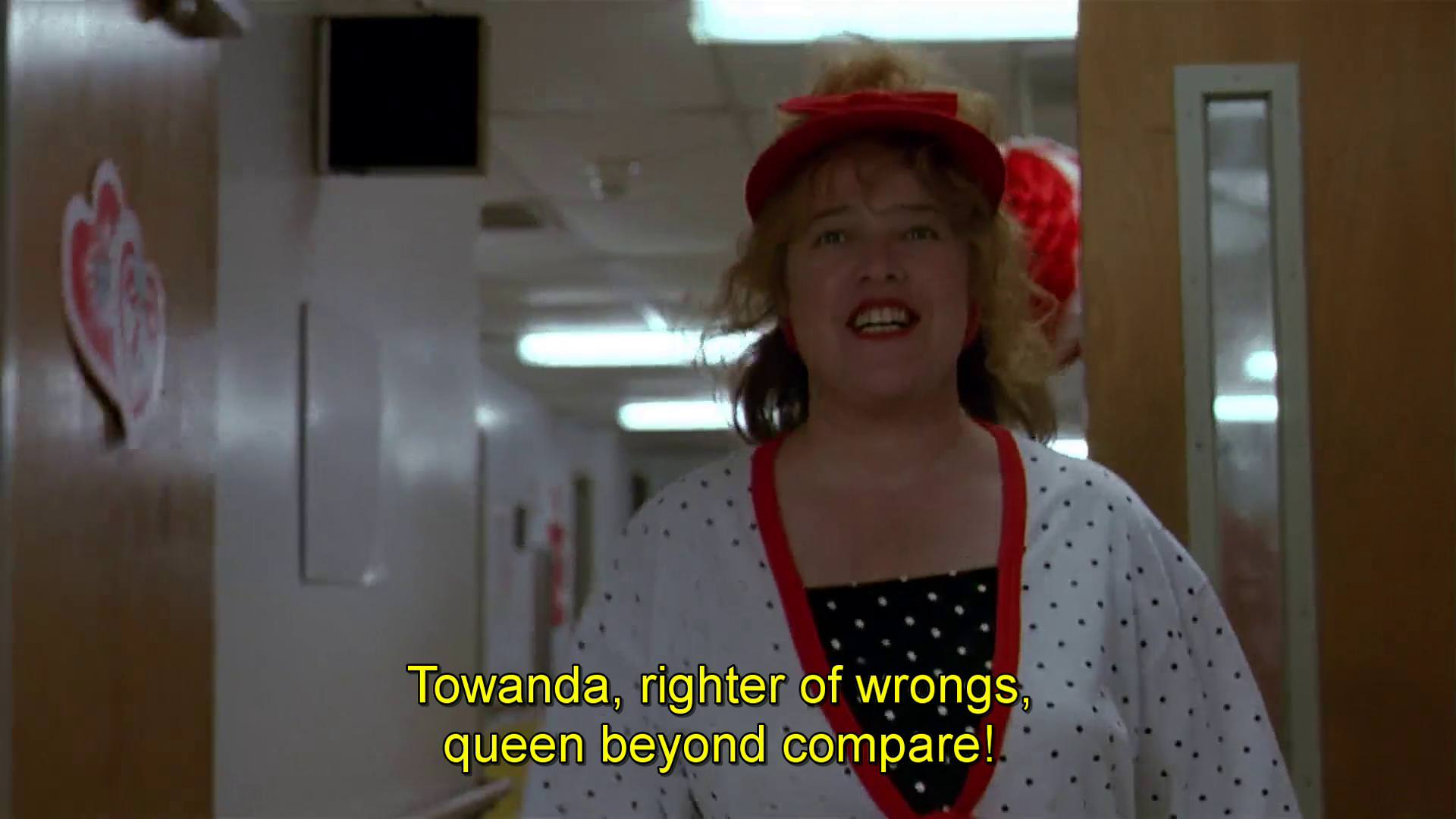
A Battle Cry from a Southern Café
When Kathy Bates’s Evelyn Couch screams “Towanda!” and slams her car into the vehicle of two younger women who stole her parking spot, it becomes one of the most iconic moments in Fried Green Tomatoes. But more than just comic relief, that scene tapped into a deeper cultural nerve—one that has only grown louder in the decades since the film’s release. Today, Fried Green Tomatoes is widely regarded not just as a beloved Southern drama, but as a quiet feminist revolution wrapped in a charming period tale.
As the film passes its 33rd anniversary, its influence continues to be felt in conversations about female rage, empowerment, identity, and the reclaiming of narrative. Women of all ages, backgrounds, and identities still find strength, catharsis, and community in the stories of Evelyn, Idgie, Ruth, and Ninny. But how did a modest 1991 drama set in a sleepy Alabama town become a lasting symbol of feminist resistance?
Evelyn Couch: A Relatable Heroine for Every Woman
Evelyn Couch begins the story as many women do—invisible, overlooked, and quietly unraveling. Her husband barely notices her. Her attempts at weight loss and self-improvement are dismissed. She is surrounded by a society that values youth, thinness, and passivity. But through her conversations with Ninny Threadgoode, Evelyn slowly awakens.
Her transformation is not fast or flashy. It doesn’t involve new clothes or a makeover. Instead, it happens in her voice, her posture, and her sense of worth. By the end of the film, she’s walking taller, speaking up, and advocating for herself and others. And, of course, smashing a car with glee.
For many viewers—particularly middle-aged women—Evelyn is a mirror. She represents a demographic rarely seen in Hollywood: women who are not young or glamorous, but who are funny, wise, wounded, and capable of profound growth. Her arc is one of reclamation, and that has made her one of the most quietly revolutionary characters in feminist cinema.
Idgie and Ruth: Love, Loss, and Resistance

While Evelyn’s story anchors the film in modern frustrations, Idgie Threadgoode and Ruth Jamison’s narrative carries the deeper themes of rebellion and courage. Idgie, the tomboy who refuses to conform, and Ruth, the gentle soul who survives abuse and finds refuge in love, together create a partnership that defies the norms of the 1920s South.
Their café is more than a business—it’s a haven. They feed the hungry, employ Black workers with respect, and stand up to local bullies. They fight for each other in ways that feel deeply radical, especially when viewed through a modern lens. Their relationship, steeped in loyalty and implied queerness, is an act of everyday resistance.
Though the film doesn’t label them explicitly, audiences have long read Idgie and Ruth as a same-sex couple. That representation—especially during a time when queer characters were rarely depicted with dignity—meant the world to many LGBTQ+ women. It was a feminist love story hidden in plain sight, and that subversive subtlety is part of what helped the film reach so many hearts.
Generational Feminism: Ninny’s Role in Passing Down Power
Jessica Tandy’s Ninny Threadgoode may seem like a secondary character, but her role is vital. As a narrator, she becomes the bridge between past and present, offering Evelyn more than just stories—she gives her permission to change. Through her storytelling, Ninny models a kind of matriarchal power that doesn’t rely on wealth or status, but on memory, spirit, and lived experience.
In a society that often silences older women, Ninny’s voice rings clear. She laughs, reminisces, and challenges Evelyn to live more boldly. Her presence honors the idea that wisdom is an act of care—and that the passing down of women’s stories is itself an act of feminist resistance.
This multi-generational bond between Evelyn and Ninny echoes the real-life friendships that spark activism and healing. The film quietly suggests that growth doesn’t end at 20 or 30—it continues into your 50s, 60s, and beyond.
“Towanda!” as a Modern-Day Mantra
More than three decades after its release, “Towanda!” remains a rallying cry. It’s printed on mugs, shouted at protests, and whispered in moments of personal bravery. It has come to symbolize women taking up space—physically, emotionally, socially.
The line’s power lies in its absurdity and its truth. Evelyn creates the persona of Towanda as an imaginary alter ego—braver, louder, and unapologetically fierce. By the end of the film, she doesn’t need Towanda anymore. She has become her.
That journey—from fantasy to embodiment—mirrors the feminist journey for many women. The desire to be bold, to fight back, to assert one’s value in a world that dismisses it—Fried Green Tomatoes gave that desire a name.
Feminism in the South: A Complicated but Crucial Portrait
The setting of Fried Green Tomatoes is not incidental. By placing the story in the American South, the film situates feminism in a place where tradition often reigns supreme. But it’s also a place of quiet rebellion, of women who have always carved their own paths in kitchens, on porches, and behind church pews.
The film doesn’t ignore the South’s complexities—it addresses racism, sexism, classism, and violence. But it also highlights solidarity. Black and white women working together in the café. Families forged through love instead of blood. A community that, while flawed, holds moments of grace.
In doing so, the film challenges the notion that feminism is only urban, liberal, or academic. It shows that strength, subversion, and sisterhood can thrive anywhere—even in a small town with a single café.
The Legacy Continues: New Generations Discover the Film
Thanks to streaming platforms, online fan communities, and intergenerational sharing, Fried Green Tomatoes continues to find new audiences. Young women today are watching it for the first time and finding surprising relevance. Themes of burnout, bodily autonomy, domestic violence, queer love, and systemic injustice are not relics—they are current.
And the film doesn’t shout. It whispers. It lets the characters do the talking, and trusts that audiences—especially women—will hear what’s really being said beneath the surface.
For Gen Z and millennials, the film is being recontextualized as a quietly radical text. TikTok tributes, essay reviews, and feminist think pieces have all contributed to its renewed cultural moment.
Conclusion: A Feminist Classic Disguised as Comfort Food
Fried Green Tomatoes may be wrapped in nostalgia and comfort food, but it is a film that dares to question authority, celebrate unlikely friendships, and reimagine womanhood outside of stereotypes. Its feminism is not loud or theoretical—it’s lived. It’s cooked into every meal, sewn into every dress, and whispered in every act of kindness or defiance.
As long as women are searching for their voices, building their communities, and saying “enough,” Fried Green Tomatoes will continue to matter.
And if they need a little help along the way, they can always shout, “Towanda!”
